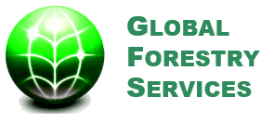GFS Response to Global Witness Letter dated 23 July 2015:
Global Witness has issued an open letter dated 23 July 2015 to “Buyers of Sarawak Timber” that accused the state of widespread illegal logging, abuse of native rights and destruction of tropical forests and biodiversity. GFS shares the organization’s concern on logging activities in Sarawak, Malaysia. However, Global Witness did not provide correct information in their letter regarding Global Forestry Services and the assessment of Timber License T/0413. Thus, GFS has provided a letter to Sarawak Timber Association and Participants in the GFS Wood Tracking & Legal Verification programs clarifying the actual situation concerning GFS programs and the assessment of Samling license T/0413.
Sarawak:
The new Chief Minister of Sarawak, Tan Sri Datuk Patinggi Haji Adenan Satem has made significant efforts to address illegal logging in Sarawak since taking office in 2014. The Chief Minister has stopped approving new timber concessions and permits for large-scale plantations; however, joint-venture NCR plantations and small holdings can still be approved. The Chief Minister is also giving long-term tenure to timber licensees who are undertaking timber certification. In addition, the State’s Forests Ordinance has been strengthened to better regulate its forest resources.
GFS Legal Verification & Wood Tracking Programs:
The GFS Programs are designed to support the due diligence needed by importers to support them to comply with the US Lacey Act; Australian Illegal Logging Act; Japan Goho Wood & EU Timber Regulations.
Global Witness accuses GFS Legal Verification Services to be questionable, based on old reviews conducted in 2012. GFS operates the LVS and WTP in accordance to formal procedures based on ISO systems that are reviewed annually. The current versions of the programs were revised in March 2015, which have addressed concerns raised in the previous report.
The GFS Legal Verification Service is operated based on formal procedural systems (GFS PR 008 v07 March 2015) using common industry procedures used by many certification bodies but incorporate local requirements such as for Sarawak Malaysia (LVS-005a Legal Requirements Sarawak v06 Feb 2014). The Chain of Custody system is governed by a formal procedure (GFS PR-007 WTP v06 March 2015) with the requirements defined in document # WTP-005 v10 March 2015.
Assessment of Samling License area T/0413:
GFS assessed the management and operational activities of the company within the licensed area and evaluated ALL currently active logging coupes within T/0413. The Norwegian Pension Fund references issued raised in 2009 that was not evident in the 2015 assessment.
GFS checked all 14 Longhouse agreements and interviewed the head of 3 out of the 14 long houses to verify that the agreements and communication system was functional. Long houses identified by Global Witness in their report on Sarawak & Samling include Long Kerong, Long Sepigen and Long Lamai were NOT located within T/0413 license area, thus were out of the scope of the assessment.
A portion of the disputed area claimed by Longhouse Ba Jawi actually overlaps land claimed by 3 other longhouses that have signed formal agreements with Samling.
Coupe areas that do not have agreements are excluded from planned harvesting operations. Samling is only operating in coupe areas where agreements have been signed. There was no evidence of logging within disputed areas of coupes during the assessment.
Sarawak Timber Trade:
Trade in tropical timber is important to maintain the forest industry. Boycotting timber from tropical forests will continue to devalue the forest resources and wood products that can result in increased pressure to convert forests into higher value commodities such as oil palm. The trade for verified / certified timber products can make a positive difference in tropical forestry and sustainability of the timber industry in Sarawak by pushing the industry to become more transparent in the traceability of material as well as in the management of tropical natural forests.
GFS is keen to work with the Sarawak government to advocate improved forest and logging practices and has recently been encouraged by the change in direction of the Sarawak Government towards Sustainable Forest Management. GFS provides professional services to assist the forest sector move from conventional logging to sustainable forest management systems.
GFS encourages the market to promote the trade in both Certified & Verified Legal wood products from Sarawak, as it will support improvements in both forest management and the timber industry. Increased demand for Certified & Verified Legal wood products can make a positive difference in tropical forestry and sustainability of the timber industry in Sarawak, by pushing the forest industry to become more transparent in the traceability of material, as well as in the management of the forests.
